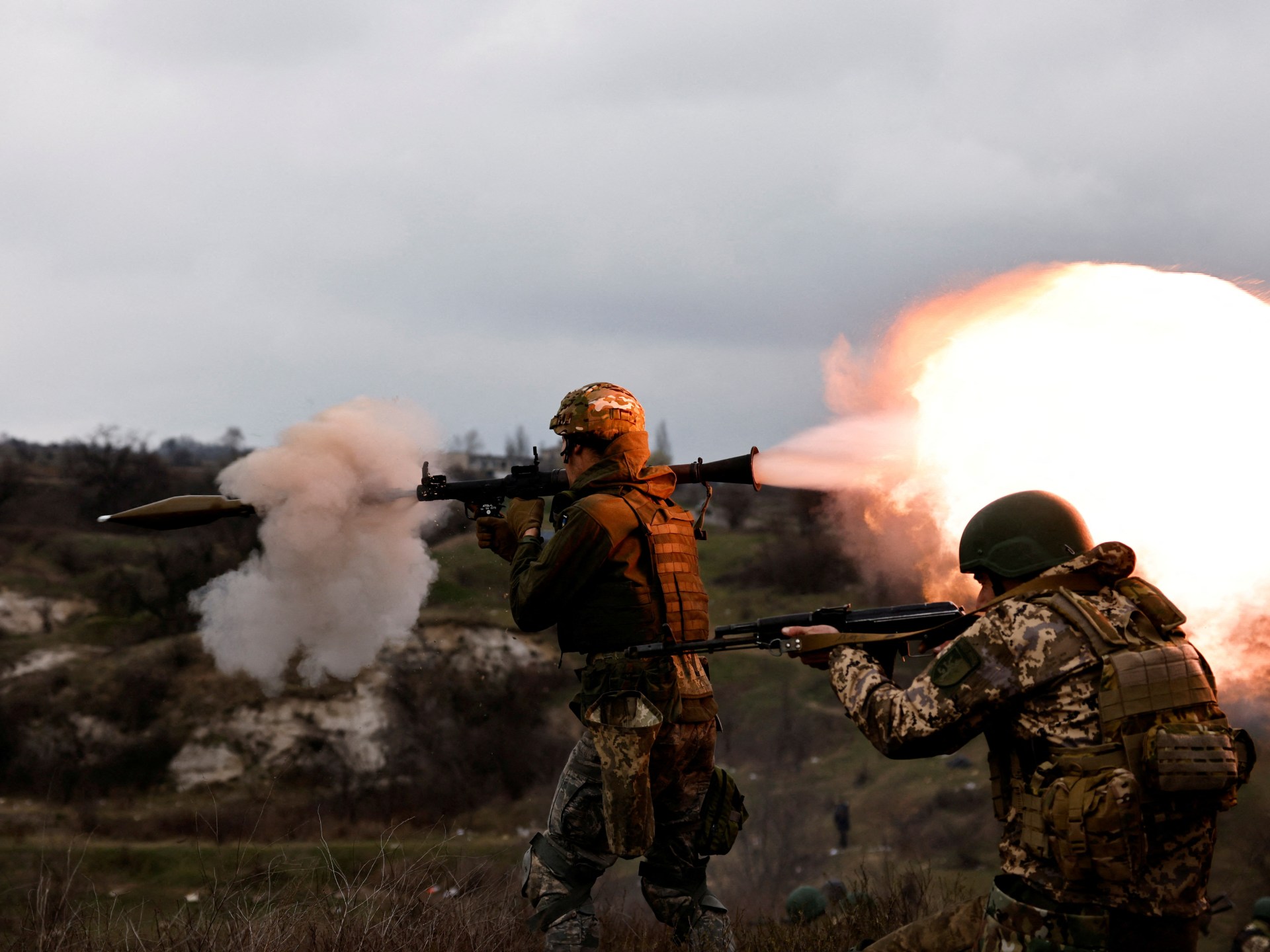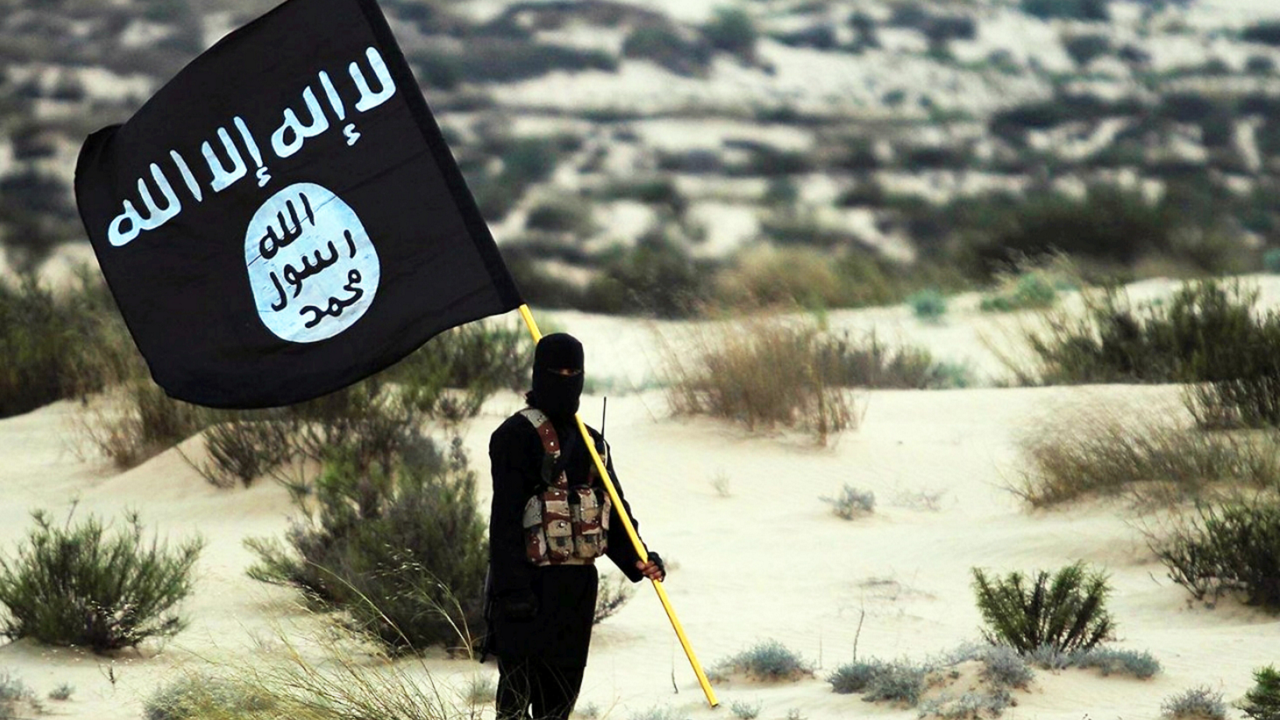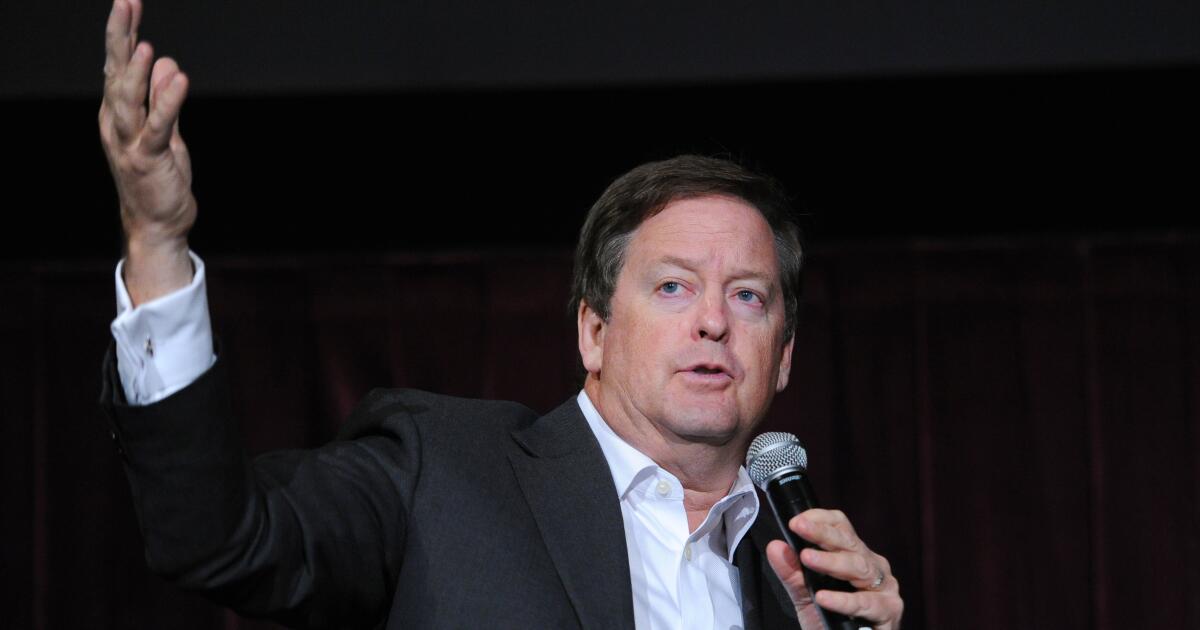World
Additional US military aid to Ukraine will be a ‘fiasco’, Kremlin says

Moscow is ‘very attentively’ watching as US President Joe Biden and Ukraine’s Volodymyr Zelenskyy meet in Washington.
Any further United States aid to Ukraine will be a “fiasco”, the Kremlin has said ahead of a meeting in Washington between US President Joe Biden and Ukraine’s Volodymyr Zelenskyy.
Moscow is also “very attentively” watching developments as the two leaders are set to meet on Tuesday, Kremlin spokesman Dmitry Peskov said.
Zelenskyy’s visit is part of a last-ditch plea to US lawmakers to keep military support flowing as he battles Russia.
As the Ukrainian leader visits the White House and Capitol Hill, Biden’s request for billions in additional aid for Ukraine and Israel is at serious risk of collapse in Congress.
“It is important for everyone to understand: The tens of billions of dollars pumped into Ukraine did not help it gain success on the battlefield,” Peskov said, speaking at a news conference in Moscow on Tuesday.
“The tens of billions of dollars that Ukraine wants to be pumped with are also headed for the same fiasco.”
The Kremlin spokesman said the outcome of the meeting would not change the situation on the front line in Ukraine, nor the progress of Russia’s “special military operation” in the country.
He added that Zelenskyy’s authority was being undermined by his government’s “failures” in the ongoing war.
Russia’s gain
On Monday, Zelenskyy warned that failing to maintain support for Ukraine would play into the hands of Russian President Vladimir Putin.
“Let me be frank with you, friends. If there’s anyone inspired by unresolved issues on Capitol Hill, it’s just Putin and his sick clique,” he said, speaking to soldiers at the National Defense University in Washington, DC.
Zelenskyy and Biden have argued that helping Ukraine resist Russia’s invasion, launched in February 2022, is in the mutual interests of both countries as support for Ukrainian aid hits political snags in the US.
During their talks, the two plan to discuss a way to rally support for the military aid plan primarily focused on Ukraine and Israel.
Last week, Republicans blocked the plan after walking out of a classified briefing on Ukraine amid demands for US-Mexico border reforms. Some Republicans are opposed to giving a “blank cheque” for Ukraine.
The US Congress has approved more than $110bn in security assistance for Ukraine since Russia launched its invasion but has not approved new funds since the Republican Party gained a majority in the House of Representatives in January.
Biden has asked Congress to approve an additional $61.4bn in support for Ukraine as part of a larger $110bn package that includes more funds for Israel and other issues.

World
Xi's European tour: Some euro, no vision

The opinions expressed in this article are those of the author and do not represent in any way the editorial position of Euronews.
For China to revive its fortunes, it must fundamentally change course, abandoning its version of predatory state capitalism in favour of the genuine market reforms its trade partners worldwide are calling for, Elaine Dezenski writes.
Xi Jinping arrived in Europe earlier this week lugging some heavy economic baggage.
With foreign direct investment into China plunging 82% to just $33 billion (€30.5bn) in 2023 — a three-decade low — one might have expected Xi’s tour to be a full-fledged charm offensive aimed at wooing back skittish European investors and businesses.
However, the authoritarian leader’s trip was anything but charming.
Rather than candidly address the headwinds battering China’s economy and appease anxious trading partners, Xi doubled down on the same tone deaf tactics that have defined his authoritarian rule for over a decade.
Cosying up to the like-minded regimes in Hungary and Serbia, Xi offered limited compromises on China’s aggressive trade practices. This hardline posture underscores Xi’s fundamental inability to relate to major market economies as an equal partner respecting fair competition.
For China, the results have been disastrous. The fact that the US has now surpassed China as Germany’s largest trading partner lays bare the costs of Xi’s inflexible approach.
Germany has been one of China’s more reliable European partners — this shift, however, shows the extent of Europe’s growing rejection of China’s hegemonic ambitions.
A bad call at a bad time
With a looming demographic crisis at home and a faltering real estate sector, China needs its top export markets — the US and Europe — more than ever. But authoritarians don’t make a habit of offering concessions or leading with a spirit of compromise.
Xi had a prime opportunity on this European tour to chart a new course, one oriented around economic liberalisation, market reforms, supply chain transparency, and fair competition.
Instead, he chose the path of confrontation towards vital European trading partners while cosying up to Europe’s authoritarian eastern flank.
This represents an untimely miscalculation. By ignoring the reasonable concerns of Europe’s leading economies, Xi has squandered an opportunity to help stave off potential economic implosion at home.
Foreign capital will continue fleeing, spooked investors won’t return, and European markets will become increasingly inaccessible so long as Beijing maintains its predatory trade practices.
Respect the rules of the market you need
The reality is that while China’s domestic market remains important, the number of foreign firms deriving profits there appears to be shrinking.
According to a report from the McKinsey Global Institute, multinational corporations’ “share of all revenues earned in China declined from 16% to 10% from 2006 to 2020.”
For many, the Chinese market has become an empty promise. The European Union Chamber of Commerce in China’s latest survey shows record-low business confidence in the Chinese market.
In fact, a record share of respondents doubted their profitability in China. In the US, as well, less than half of companies responding to an American Chamber of Commerce in China survey indicated they expect to be profitable in 2024.
Xi had an opportunity to change the tides with respect to investment in China. He could have addressed the pressing needs of his European trading partners with humility and opened the door to renewed economic cooperation.
Unfortunately for the Chinese people, returning to robust commerce with Europe and North America’s major economies would require the flexibility and respect for market principles that Xi’s authoritarian mindset renders him incapable of delivering.
With foreign capital fleeing, property values falling, youth unemployment surging, and indebtedness soaring, China is in desperate need of a win for its export-driven economy.
The status quo won’t fly any more
On this trip, European Commission President Ursula von der Leyen bluntly conveyed the EU’s demands for fair economic competition with China and its willingness to robustly defend its interests against Beijing’s unfair trade practices.
In response, Xi bluntly denied the basis for Europe’s concerns, claiming, “The so-called ‘problem of China’s overcapacity’ does not exist, either from the perspective of comparative advantage or in light of global demand.”
This builds on the ES’s 2019 designation of China as a “systemic rival” and should be understood in China for what it is: a clear warning that the status quo is no longer acceptable.
By doubling down on authoritarian belligerence, Xi demonstrated a lack of vision for productive European engagement.
For China to revive its fortunes, it must fundamentally change course, abandoning its version of predatory state capitalism in favour of the genuine market reforms its trade partners worldwide are calling for.
By ignoring Europe’s call for change, Xi has ensured darker economic days ahead for the Chinese people.
Elaine Dezenski is senior director and head of the Center on Economic and Financial Power at the Foundation for Defense of Democracies, a non-partisan think tank based in Washington, DC.
At Euronews, we believe all views matter. Contact us at view@euronews.com to send pitches or submissions and be part of the conversation.
World
Minnesota unfurls new state flag atop the capitol for the first time Saturday
ST. PAUL, Minnesota (AP) — Minnesota officially unfurled its new state flag atop the capitol for the first time Saturday on statehood day.
The new flag and accompanying state seal were adopted to replace an old design that Native Americans said reminded them of painful memories of conquest and displacement.
The new symbols eliminate an old state seal that featured the image of a Native American riding off into the sunset while a white settler plows his field with a rifle at the ready. The seal was a key feature of the old flag. That’s why there was pressure to change both.
Officials didn’t pick any of the most popular designs submitted online that included options like a loon — the state bird — with lasers for eyes.
Instead, the new design adopted in December features a dark blue shape resembling Minnesota on the left, with a white, eight-pointed North Star on it. On the right is a light blue field that to those involved in the selection process symbolizes the abundant waters that help define the Land of 10,000 Lakes.
The new state seal features a loon amid wild rice.
World
2 ISIS militants suspected in 2014 massacre of Iraqi soldiers turned over to Baghdad

Syria’s U.S.-backed Kurdish-led force has handed over to Baghdad two Islamic State group militants suspected of involvement in mass killings of Iraqi soldiers in 2014, a war monitor said Friday.
The report by the Syrian Observatory for Human Rights came a day after the Iraqi National Intelligence Service said it had brought back to the country three IS members from outside Iraq. The intelligence service did not provide more details.
The Islamic State group captured an estimated 1,700 Iraqi soldiers after seizing Saddam Hussein’s hometown of Tikrit in 2014. The soldiers were trying to flee from nearby Camp Speicher, a former U.S. base.
ISIS CLAIMS RESPONSIBILITY FOR BOMBING THAT KILLED A DOZEN POLICE OFFICERS IN AFGHANISTAN
Shortly after taking Tikrit, IS posted graphic images of IS militants shooting and killing the soldiers.
Farhad Shami, a spokesman for the Kurdish-led Syrian Democratic Forces, said the U.S.-backed force handed over two IS members to Iraq. It was not immediately clear where Iraqi authorities brought the third suspect from.
A masked Islamic State soldier poses holding the ISIS flag in 2015. (Pictures from History/Universal Images Group via Getty Images)
The 2014 killings, known as the Speicher massacre, sparked outrage across Iraq and partially fueled the mobilization of Shiite militias in the fight against IS, a Sunni extremist group.
Iraq has over the past several years put on trial and later executed dozens of IS members over their involvement in the Speicher massacre.
The Observatory said the two IS members were among 20 captured recently in a joint operation with the U.S.-led coalition in the northern Syrian city of Raqqa, once the capital of the Islamic State group’s self-declared caliphate.
Despite their defeat in Iraq in 2017 and in Syria in March 2019, the extremists sleeper cells are still active and have been carrying out deadly attacks against SDF and Syrian government forces.
Shami said a car rigged with explosives and driven by a suicide attacker tried Friday night to storm a military checkpoint for the Deir el-Zour Military Council, an Arab majority faction that is part of the SDF, in the eastern Syrian village of Shuheil. Shami said that when the guards tried to stop the car, the attacker blew himself up killing three U.S.-backed fighters.
No one immediately claimed responsibility but the attack but it was similar to previous such explosions carried out by IS militants.
The SDF is holding over 10,000 captured IS fighters in around two dozen detention facilities, including 2,000 foreigners whose home countries have refused to repatriate them. The force says fighters of about 60 nationalities had entered Syria years ago and were captured in battle.
Kurdish authorities in northeastern Syria have said they will put on trial IS detainees, though it is not clear when such trials would begin.
-

 News1 week ago
News1 week agoPolice enter UCLA anti-war encampment; Arizona repeals Civil War-era abortion ban
-

 Politics1 week ago
Politics1 week agoThe White House has a new curator. Donna Hayashi Smith is the first Asian American to hold the post
-

 News1 week ago
News1 week agoSome Florida boaters seen on video dumping trash into ocean have been identified, officials say
-

 Education1 week ago
Education1 week agoVideo: President Biden Addresses Campus Protests
-
)
) Movie Reviews1 week ago
Movie Reviews1 week agoThe Idea of You Movie Review: Anne Hathaway’s honest performance makes the film stand out in a not so formulaic rom-com
-

 World1 week ago
World1 week agoUN, EU, US urge Georgia to halt ‘foreign agents’ bill as protests grow
-

 World1 week ago
World1 week agoIn the upcoming European elections, peace and security matter the most
-

 World1 week ago
World1 week agoArizona Senate repeals near-total 1864 abortion ban in divisive vote



















